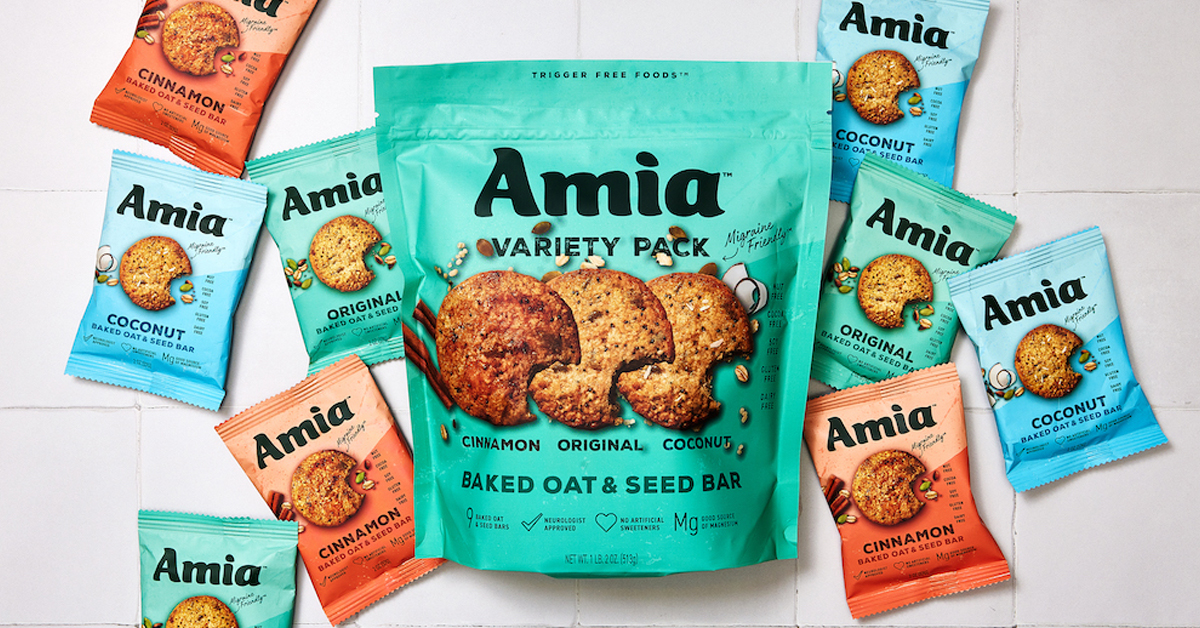How Amia Is Creating a New Category for Migraine Sufferers

Forty million Americans experience migraines. One Austin, Texas-based startup wants to help ease the pain by creating a new category of “trigger-free” foods.
Late last year, Jon Katz – a longtime sufferer, himself – launched Amia, the first-to-market brand that stakes its claim, currently in the nutrition bar space, by avoiding ingredients found to trigger the condition. Today, television actor Jennifer Morrison joins the company as a co-founder and chief brand officer as early-stage Amia works to build awareness around the notion of migraine-friendly nutrition.
Amia’s first offering is a line of baked oat and seed bars that are free of gluten, dairy, soy, nuts and cacao. The products are formulated with organic ingredients including rolled oats, pepita seeds, hemp hearts, chia seeds, ground flax, agave nectar, brown rice syrup, coconut oil and konjac root. Flavor varieties include Original, Cinnamon and Coconut.
Katz partnered with medical experts and food scientists to develop the products, inspired by the book “Heal Your Headache” by David Buchholz, M.D., a neurologist who treated thousands of patients with an elimination diet to determine the most common triggers linked to attacks. He said he experienced a significant reduction in migraine frequency after eliminating ingredients such as chocolate, peanuts, tree nuts, citrus fruits, yeast and eggs, as well as certain sweeteners, preservatives, flavorings and gums.
The products are designed to complement, not replace, other migraine remedies or medications. Still, Katz believes the market opportunity extends beyond individuals with chronic migraines, drawing a comparison to the broader appeal of gluten-free foods outside of the celiac population.
“Celiac disease impacts about four million Americans, but people who aren’t celiac still go gluten-free, and I actually believe that’s going to be the same thing with this ‘trigger-free’ category,” he said.
Amia bars are sold online and in select regional grocers including Central Market stores in Texas where they retail for $3.79 each. A box of nine bars on the brand’s website costs $24.30.
Katz plans to expand the brand into additional high-volume, quick-turning categories, eventually creating a complete assortment for migraine management. Nutrition bars – though a crowded segment – represented the most compelling opportunity, he said, noting “the biggest pain point for people who suffer from migraines is the on-the-go” occasion.
“Almost every bar on the market has at least one potential trigger,” he added.
As for Morrision, she will draw upon her own experience with the condition and partner with the brand’s product and marketing teams to “strengthen our position as the leader in migraine-friendly, trigger-free foods,” she said.
“My experience with migraine has crystallized over the last few years; the foods I consume play a major role in triggering my migraines, but it’s never been easy to shop and avoid many of the common triggers,” she said. “When I first met Jon, the blueprint he shared for Amia’s mission and vision really resonated with me.”

















